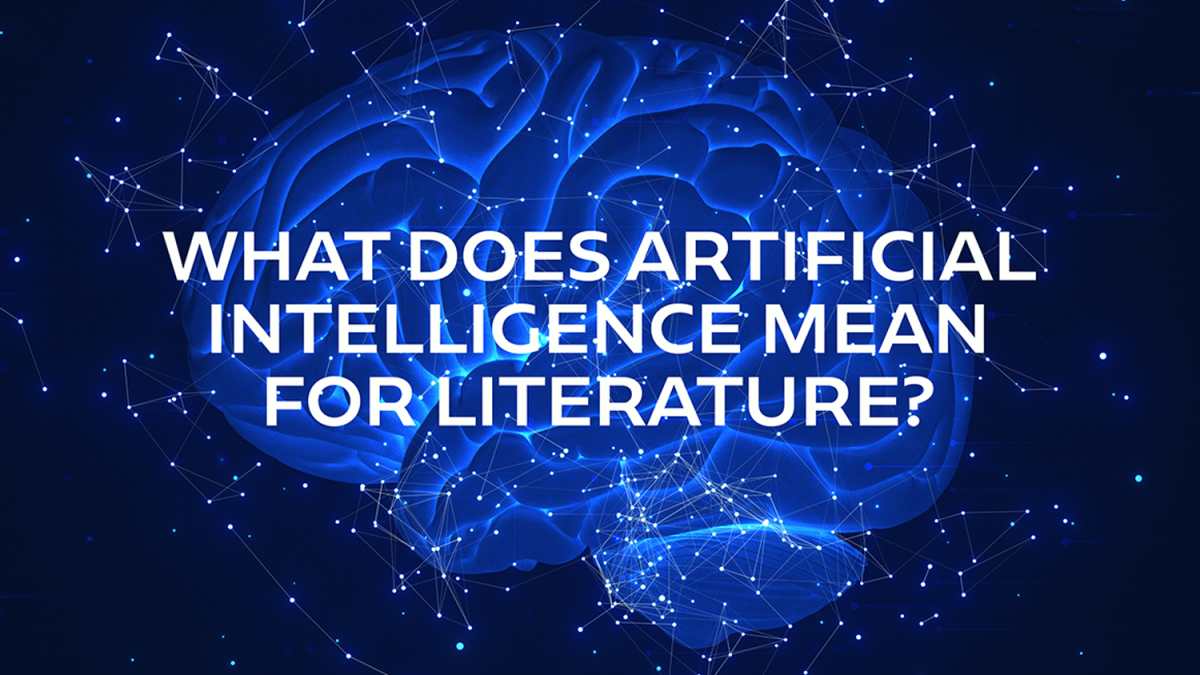The Future of Writing

By Rebecca Foster
Artificial intelligence: useful tool or existential threat to human creativity? Here’s a quick look at some of the issues specific to writing and publishing.
The ongoing screenwriters’ strike is in part about studios training AI on their scripts—perhaps with an eye to replacing human writers.
Novelists share that anxiety. Hari Kunzru recently announced on Twitter that he renegotiated his PRH contract to exclude his work from AI training data. The Authors Guild and the UK’s Society of Authors advise the same. The Authors Guild also provides model clauses requiring author consent for AI-generated cover art or translations.
For all the worries, is AI-produced work actually any good? The consensus: it’s not bad. The output can be nonsensical, but, as the Society of Authors reports, “it is good enough in many situations and it is improving daily.”
My husband, a university lecturer, suspects answers partially engendered by ChatGPT are creeping into students’ take-home exams—for instance, he’s noticed recurring examples not from the textbook or lectures. Unlike straightforward plagiarism, which can be verified via the online checker Turnitin, it’s impossible to prove reliance on ChatGPT.
Publishers, too, may be unable to detect its use in manuscripts. In an Authors Guild survey of 1,700 members, 23 percent admitted to having used AI, often to spark ideas or improve structure and grammar.
The notion of AI writing entire books, once a matter for science fiction, has become reality. Ross Goodwin took an AI on a road trip to generate a twenty-first century take on Jack Kerouac, 1 the Road (Jean Boîte Éditions, 2018), marketed as “the first novel written by a machine.”
In February 2023, nearly 300 ChatGPT-authored books went on sale on Amazon. The turnaround for low-quality books can be less than a day.
Murder mysteries might be easier to produce via algorithm because the plots follow formulae. Laura Miller, reviewing the 95 percent AI-written novella Death of an Author (Pushkin Industries, 2023) by Stephen Marche, aka “Aidan Marchine,” for Slate, called it “more intriguing than many of the human-written mysteries I dip into” and dubbed the prose “better than average.”
Sci-fi has long engaged with the questions raised by machine learning; literary fiction has also followed suit. Two upcoming novels ponder the question of AI authorship.
In Do You Remember Being Born?, Sean Michaels’s third novel (Astra House, September 5), 75-year-old poet Marian Ffarmer, struggling for cash, agrees to move to California and join forces with the Tech Company’s poetry bot.
Debbie Urbanski’s debut novel, After World (Simon & Schuster, December 5), imagines that an AI trained on twenty-first century literature begins composing a novel about the last human remaining on Earth—and falls in love with her.
AI may be a time-saver, even a helpful first-draft assistant, but it generally can’t create content to match what a human could write. Its work is not winning any prizes.
But will it improve to be “better” than humans’? Is the prognosis dire for writers? With earnings on the decline, especially since Covid, anything that cuts into profits is a serious danger. From that same Authors Guild survey: 69 percent think their careers are threatened by generative AI.
The rapidly evolving situation will require academics, writers, and publishers to be proactive in setting up regulations that ensure ethical use, authorial integrity, and fair compensation.
In the meantime, it’s rich fodder for the imagination.
Rebecca Foster
